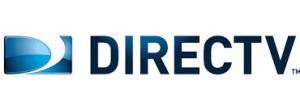 AT&T has approached DirecTV about a possible acquisition of the satellite provider in a deal expected to fetch at least $40 billion, spare change for AT&T’s $185 billion operation.
AT&T has approached DirecTV about a possible acquisition of the satellite provider in a deal expected to fetch at least $40 billion, spare change for AT&T’s $185 billion operation.
The Wall Street Journal reports the deal would combine DirecTV’s 20 million customers with AT&T’s 5.7 million U-verse customers, rivaling the size of a combined Comcast and Time Warner Cable.
The idea for the merger came after Comcast and Time Warner Cable struck their deal in February, and a person familiar with the merger talks reports DirecTV is receptive to a deal with AT&T. AT&T CEO Randall Stephenson reportedly saw the next wave of consolidation in the American cable market as a potential game-changer, forcing AT&T to refocus its growth priorities back towards the United States instead of Europe.
Satellite companies like Dish and DirecTV are at an increasing disadvantage because growth in television subscriptions has stalled. Neither satellite company has a competitive broadband offering, and as more Americans gain access to wired broadband, many choose to bundle service with the company that provides Internet access.
 DirecTV’s growth has fallen every year since 2010 and starting in 2013, the company began losing more subscribers than it signed up.
DirecTV’s growth has fallen every year since 2010 and starting in 2013, the company began losing more subscribers than it signed up.
A combined AT&T-DirecTV would market satellite television nationwide, U-verse TV and Internet where available, wireless phone and broadband service, and rural satellite Internet access.
AT&T has explored an acquisition of a satellite provider for more than a decade and already partners with DirecTV to sell AT&T landline customers a bundle including the satellite provider’s television service.
As with most significant acquisitions proposed by AT&T, the Justice Department and the Federal Communications Commission will likely scrutinize any merger deal carefully. Both companies must prove the deal is in the public interest. But the Journal reports the FCC might be amenable to the deal because it considers satellite television without broadband a threatened business. Lobbyists are likely to argue the joint company would be the best positioned to compete effectively with a combined Comcast-Time Warner Cable.
If a deal appears likely, Dish Network is expected to face immediate pressure to also merge with an existing cable or telephone company.
Another alternative attempted in the past was a direct merger between DirecTV and Dish, an idea regulators nixed more than a decade ago. Today, such a deal would not solve either company’s difficulty providing broadband service.
Consumer groups are likely to oppose the merger because it further consolidates an industry they believe already sorely lacks competition. AT&T’s lawyers are reportedly already laying the foundation for a major lobbying campaign to promote the deal.
[flv]http://www.phillipdampier.com/video/WSJ ATT Approaches DirecTV for Merger 5-1-14.flv[/flv]
The Wall Street Journal provides more insight into the proposed merger of AT&T and DirecTV and how government regulators are likely to see the deal. (2:51)


 Subscribe
Subscribe
Funny that AT&T thinks that they can bundle their service with DirecTV.
In Illinois, AT&T’s hardwire phone areas are mostly in large population urban areas like Chicagoland, Peoria, Rockford, Springfield, Decatur, Champaign-Urbana. Rural Illinois areas tend to have other ILECs like Frontier, Consolidated, CenturyLink, and smaller companies.
So, I am not sure how much cross-selling that AT&T / DirecTV could do for each other, at least in Illinois.
Are other states different on this bundle point?
This merger would be a huge waste of money, there’s no way they can leverage DirectTV to effectively bundle and compete with the Cable CO’s or Fiber to the home with TV service which they already have a system and package for. What about states like mine where there is no wired AT&T broadband? Satellite isn’t a slam dunk either for getting service due to no line of sight or rights to mount a dish due to HoA or Rental agreements. Companies like AT&T just need to suck it up and invest that kind of money into a real infrastructure… Read more »